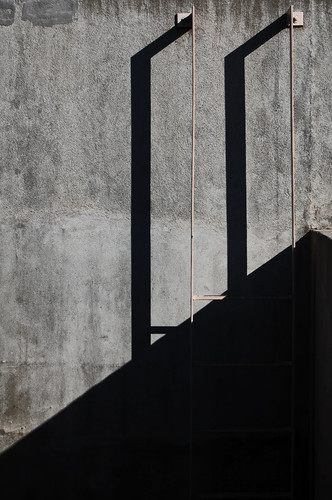Joe Biden’s win in the US Presidential election is part of a run of good news for the Global Climate. Biden has promised to rejoin the Paris Agreement on his first day in office.
The US is then required to commit a Nationally Determined Contributions (NDCs) to reductions in carbon emissions. Biden has already announced that he is committed to achieving zero net emissions by 2050, and this, along with an interim 2030 target will presumably be the basis of the US NDC.
Net zero by 2050 is now the international norm.
{ 32 comments }
In 2016 I was blithely confident that Clinton would win right up till about the last 3 or 4 days. It wasn’t exactly because I believed the polls: I just couldn’t really believe that swing voters would vote for someone as manifestly nasty and ill-suited to office as Trump. Previous Presidents during my time in the States were not manifestly nasty, and whereas I assume that Nixon was, he was also obviously capable of doing the job, and anyway those were different times. I understood perfectly well, because Nate Silver kept insisting on it, that statistically there was a non-trivial chance that Trump would win. But I didn’t believe that enough of my new compatriots were either reckless or vicious enough to make him President.
Then, in the final few days, I became uneasy. (I think this unease informs the post that I made on election eve, which I thought was lighthearted and optimistic, but which my daughter interpreted as a prediction that Trump would win). Sure, there was the intervention by a major government agency attempting to influence the outcome. But what made me feel worse were i) noticing that my Republican, but previously never-Trumpish, relatives seemed to have become Stepford Wives/Husbands and ii) observing the complete lack of energy that students on campus seemed to have around the election. On the day itself, from the moment I walked to my office, I just felt dread.
Last week a 22-year-old told me that her best friend has thanked her to making her vote in 2016. Her friend had still not voted by 30 minutes before the polls closed, and K told her she had to go, that it would only take a minute, and that an election isn’t over till its over. Her friend says that, given that Trump won Wisconsin, she would never have forgiven herself if she hadn’t voted against him in her first election.
This time around? Well the previously never-Trumpish relatives are still in Stepford. And while I spend most of most working days on campus, its a very lonely place — I never see colleagues, and the students are sparse. Even so the early polling stations that were up over the past couple of weeks were full of students voting whenever I passed (often at not-at-all peak times). I predict that on my campus the student vote will be very high indeed. My instagram feed is packed with students and former students urging their friends and family to vote, telling them exactly how to do it, and for whom to vote. Even the young Sanders enthusiasts whose friends were anxious that they would not vote for Biden have fallen into line. Whereas in 2016 Nate Silver was constantly emphasizing how likely a Trump win was despite the polls and his own model’s projection; in the last few weeks he has constantly been emphasizing how unlikely a Trump win is despite the polls and his own model’s projection.
I hope you all have a plan. Good luck, everyone.
{ 53 comments }
Just about 24 hours until results start coming in. As was said when the same two sides (with different names) faced off in Kansas more than 150 years ago, may victory go to the side which is stronger in numbers, as it is in right.
{ 45 comments }
The pandemic has been hitting many of us hard – from the (roughly) 100 million people who were poor and are now pushed into extreme poverty, but also those of us reading this blog who might be lucky enough not to have lost their job, or not to have fallen sick or having lost family members, but who are nevertheless feeling gloomy, missing friends, and social interactions as we knew them.
But is there then absolutely nothing good coming out of this pandemic?
I confess I had to think hard to not answer this question with “No, what were you thinking??”. Still, while the advantages of the pandemic are peanuts compared to all its bad effects, there are a few changes for the good. I’ll start with pointing out the ones I see in my live and around me; then you tell me what you see in yours. [click to continue…]
{ 27 comments }
This week is the 2020 Open Access week. I’m using the occasion to share my experiences with publishing a book open access, now almost 3 years ago. I’ve had multiple emails since publishing that book, mainly from established scholars who had earlier published with world-leading academic publishers, and who were wondering whether or not they should opt for a genuine non-profit open access publisher for their next book project. [click to continue…]
{ 14 comments }
I’m in the New York Review of Books this morning, offering my thoughts on the election as part of the magazine’s series on November 2020. I make three points: Â
- The right used to be thought of as a “three-legged stool” made up of economic libertarians, statist Cold Warriors, and cultural traditionalists. Whether that characterization was accurate, it expressed an understanding of the right as a political entity capable of creating hegemony throughout society. That is no longer the case. Today, the right’s three-legged stool is an artifact, a relic, of counter-majoritarian state institutions: the Electoral College, the Senate, and the courts.
- However undemocratic these three institutions may be, they are are eminently constitutional. The most potent source of the right’s power is neither fascism nor authoritarianism; it is gonzo constitutionalism.
- Should the Democrats win the White House and the Senate come November, they will have to engage in a major project of norm erosion just to enact the most basic parts of their platform. Should they do so—eliminating the filibuster, say, for the sake of achieving voting rights for all citizens—we will see that norm erosion is not how democracies die but how they are born.
Check the rest of it out here. And if all goes well, I should have a piece on the new translation of Max Weber’s Vocation Lectures coming out soon.
{ 47 comments }
That’s the headline for my latest piece in Inside Story, looking at the implications of zero interest rates for renewable energy sources like solar and wind. Key para
Once a solar module has been installed, a zero rate of interest means that the electricity it generates is virtually free. Spread over the lifetime of the module, the cost is around 2c/kWh (assuming $1/watt cost, 2000 operating hours per year and a twenty-five-year lifetime). That cost would be indexed to the rate of inflation, but would probably never exceed 3c/kWh.
The prospect of electricity this cheap might seem counterintuitive to anyone whose model of investment analysis is based on concepts like “present value” and payback periods. But in the world of zero real interest rates that now appears to be upon us, such concepts are no longer relevant. Governments can, and should, invest in projects whenever the total benefits exceed the costs, regardless of how those benefits are spread over time.
{ 35 comments }
In the process of working on my book-in-progress, The Economic Consequences of the Pandemic, I’ve been trying to integrate a number of facts about the economy of which I’ve been more or less aware for a while, along with claims I want to make, and put them together into a coherent account of the economic system prevailing (in advanced/developed economies( in the 21st century and how it differs from the industrial goods economy of the 20th century.
As a step towards this, I’ve put together a list of factual claims which I think can be established reasonably firmly, along with claims I want to make that will be more contentious. My plan is to put this together into a coherent analysis, including supporting evidence. So, I’m keen to get good supporting links for any of these points (I have quite a bit, but more would be helfpul). I also want to be sure I’m not missing contrary evidence, and to adjust the claims if necessary, so please point this out also.
{ 60 comments }
Does the world really need yet one more academic journal? It does when there is an unmet need for disseminating certain types of work. Andy Guess, Kevin Munger (two political scientists) and I (a communication scholar/sociologist) are starting the Journal of Quantitative Description: Digital Media (link to temp Web site while the permanent one gets set up). The journal publishes quantitative descriptive social science. It does not publish research that makes causal claims. Descriptive work can be very important and also very resource-intensive to produce, yet notoriously hard to publish in existing outlets. We want there to be an outlet where people can free up the tremendous amount of information residing on their machines from data sets they have collected, but that they don’t write up and disseminate, because there is currently no place to do so. Thus our journal. JQD:DM is an open-access no-fee publication (for at least the first two years, ideally indefinitely). Check out the journal site for more on the motivation and more thoughts from Kevin on where he sees it fitting into the scientific enterprise.
{ 5 comments }
“They always bring up the toilets as an impediment to women. It’s always the toilets.”
In a seminar room in University College Dublin, some time in the spring of 1994, the historian and campaigning Dominican nun lectured final year students on twentieth century women’s history. I don’t remember if the examples Margaret MacCurtain gave us were from her own research – she was a copious and generous supporter and sharer of other scholars’ work – but her quotes from Irish politicians from the 1920s through the 1940s were bizarre and hilarious. Several generations of men had dutifully conveyed the sad but apparently insurmountable fact that women could not participate fully in public life because sports facilities and the buildings of state did not have women’s toilets. Margaret MacCurtain would rock with laughter, letting the ignorant men’s words speak to their own ridiculousness, and then barrel straight into a detailed and sympathetic analysis of why so many post-Civil War Irish women politicians were radically discomfiting. (Short answer; many were the widows and sisters of men shot by first the British and then by the Free Staters.) That was her to a ‘t’ – pulling together the cultural, the structural, the individual and the contingent practicalities that make history thick, urgent and real.
Ireland’s bravest and most beloved historian died on Monday night. Margaret MacCurtain, known to UCD students of the nineteen-sixties as Sister Ben (short for her assigned religious name, Benvenuta), was a Dominican sister and social activist who pioneered feminist history in a country (and a university department) that insisted there was simply no such thing. With other scholars, Sister Ben painstakingly established both a new area of research and the importance of women in the long struggle for Irish independence both before and after the foundation of the state. Working with Maureen Murphy of Hofstra University, New York, she established a channel of exchange between Irish and Irish-American historians whose scholarship first challenged then supplanted many complacent narratives of power with an almost infinitely diverse flora of ‘up from below’ reclamation any annaliste would be proud of. [click to continue…]
{ 7 comments }




